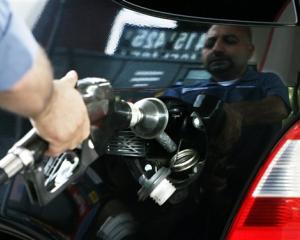If you want to look at what happens when fuel prices really rocket, look at the United Kingdom, he says. In 1990, less than 10% of new cars sold in the UK were diesel. In July 2010, diesel-car sales passed the 50% mark in the UK for the first time.
There's also been a marked increase in diesel car sales in New Zealand; in June 2010, sales of new diesel-powered cars exceeded 20% of total sales for the first time.
"The diesel combustion process, which burns fuel at a much higher temperature and pressure, is more efficient than the petrol combustion process," Mr Thomson said. "Also, diesel fuel has a higher energy density than standard petrol. Simply put, that translates as better mileage."
Compare a Toyota Corolla 1.8-litre petrol hatchback (7.3 litres per 100km) to a Toyota RAV4 2.2-litre diesel SUV (5.8 litres per 100km); the latter is 20% more fuel-efficient than the smaller car.
"In regards the overall cost of using one versus the other, though, one has to factor in the impact of road-user charges for running a diesel vehicle," Mr Thomson said.
Assuming an average driver travels 20,000km a year, the total cost of fuel plus applicable road-user charges is as follows (worked out via the government website www.fuelsaver.govt.nz). -
• 1.8-litre petrol Corolla: $3800 per annum.
• 2-litre diesel Corolla: $2960 per annum.
• 2.2-litre diesel RAV4: $3150 per annum.
"If you crunch the dollar figures above, what you will see, pretty much, is that the cost of the road-user charge pretty much nullifies the cheaper price of diesel at the pump; basically, all of the saving you make is due to the greater fuel efficiency of diesel," Mr Thomson said.
Petrol cars are usually cheaper and cheaper to service, but a diesel will come back with a generally higher resale value.
"My general rule of thumb is that diesel makes sense if you are doing higher-than-average miles, especially a lot of open-road driving."
There are other approaches, too, Mr Thomson says.
These include. -
• Ultra-efficient petrol technology (for example, Volkswagen's fuel-stratified injection system).
• Hybrids that combine batteries and technologies such as regenerative braking, stop-start engines (Peugeot has a system that automatically stops the engine when you brake at, say, traffic lights, and restarts it).
• Partial disabling of engines (Chrysler and Holden V8s shut down four cylinders when cruising)
• Solar power to run air-conditioning.







